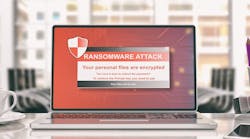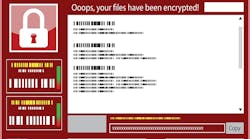Hurricane Harvey, the worst storm to hit Texas in half a century, killed 50 people, left more than 1 million displaced, and could end up costing $180 billion for disaster relief. Cleanup after Hurricane Irma tore through Florida could cost homeowners there more than $19 billion. Meanwhile, in Puerto Rico, millions remained without power, clean drinking water and access to health services weeks after Maria devastated the U.S. possession, causing an estimated $85 billion in insured losses throughout the Caribbean.
Thanks to modern communications technology, news of such disasters circulates around the world quickly. It’s a testimony to human nature that charitable response is often just as speedy in the wake of natural disasters like these.
Private individuals, companies and celebrities have all pledged or made actual donations to relief efforts, and the U.S. Chamber of Commerce Foundation says corporations have already donated nearly $225 million for Harvey and Irma relief. Aid organizations and recovery services have mobilized en masse to help Texas, Florida and Puerto Rico begin cleanup and recovery. The federal government is also expected to send billions of dollars in aid to disaster-struck regions.
Unfortunately, when disaster strikes, fraudsters and scam artists also leap into action, soliciting donations that never make it to the charity they claim to benefit, or offering fake recovery services, and posing as victims and survivors to steal government aid.
Fighting Disaster Fraud is Everyone’s Job
Formed to fight fraud scams after Hurricane Katrina in 2005, the National Center for Disaster Fraud has logged more than 70,000 complaints related to over 50 disasters, both natural and man-made. Federal officials prosecuted more than 1,300 disaster fraud cases in relation to Hurricane Katrina.
Disaster fraud siphons funds away from those who truly need it, places additional strain on law enforcement and emergency responders already laboring to aid victims and survivors, and undermines the efforts of well-intentioned companies and consumers. However, individuals and companies can — and should — help thwart disaster fraud by watching for signs of scams and taking preventive measures, including:
- Never donate in response to a social media or email solicitation. Scammers will use Facebook, Twitter, other social media and phishing emails to solicit funds that are then diverted into their own bank accounts, rather than ever going to a reputable charity. Emails may also be accompanied by attachments purporting to show images of the disaster-affected area; these attachments may actually contain a virus that will download malware onto your device.
- To donate online, go to the website of the specific charity you wish to support. Donating to established, reputable charities can help ensure your generosity goes where you intend. Charities that appear to have sprung up in response to a disaster may actually be scammers in disguise. Additionally, pay attention to the url of the charity’s website; legitimate charities typically have websites that end in .org, rather than .com.
- Be wary of phone solicitations. If you receive a phone call from someone claiming to be raising funds for disaster relief, ask for specifics such as a physical address, mailing address, name of the organization, website and phone number. Don’t commit to a donation over the phone. Instead, vet any information provided.
- Check out any charities you’re considering donating to. You can vet charities through a number of online resources, including CharityNavigator, the Better Business Bureau, GuideStar and CharityWatch.
- Never donate cash or do a money transfer. It’s easier to steal cash than checks or credit card information, plus sending cash doesn’t guarantee you’ll get a receipt for your charitable donation. Money transfers are, effectively, the same as cash, and once a transfer is complete it may be impossible to get the funds back if you later discover you’ve been scammed.
If you believe you’ve been approached by a disaster scammer or been the victim of disaster- or charity-related fraud, you can file complaints with the Federal Trade Commission or the National Center for Disaster Fraud.
When disaster strikes, upstanding consumers and corporations want to help, but fraudsters only want to compound the tragedy. Vigilance and proactive awareness by individuals and companies can help ensure scammers and other crooks don’t profit off natural disasters.
About the Author:
Michael Bruemmer, CHC, CIPP/US, is vice president with the Experian Data Breach Resolution group. With more than 25 years in the industry, Bruemmer brings a wealth of knowledge related to business operations and development in the identity theft and fraud resolution space where he has educated businesses of all sizes and sectors through pre-breach and breach response planning and delivery, including notification, call center and identity protection services. Bruemmer currently resides on the Ponemon Responsible Information Management (RIM) Board, the International Security Management Group (ISMG) Editorial Advisory Board and the International Association of Privacy Professionals (IAPP) Certification Advisory Board. He can be reached at [email protected].







